Probiotics: What They Are, Benefits & Side Effects
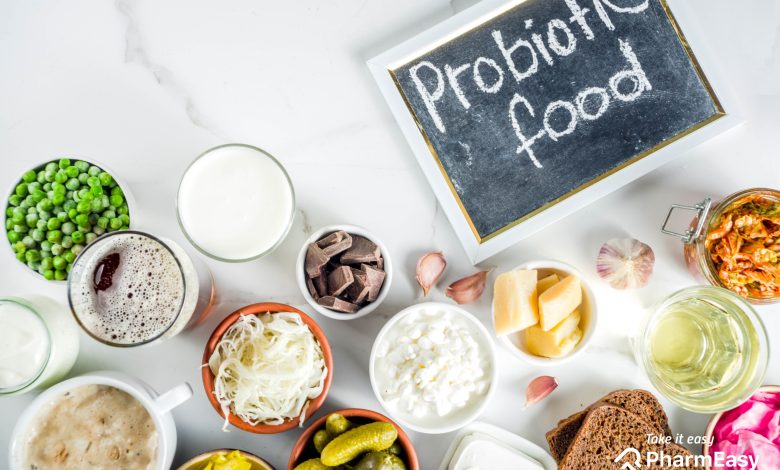
Introduction
Probiotics are live bacteria and yeasts that have beneficial effects on your body. These species already reside in your body, alongside many others. When you take probiotic supplements, you’re adding to your existing supply of friendly microbes. These little helpers combat the less friendly types and enhance your immunity against infections
Probiotics What They Are, Benefits & Side Goods,” your definitive companion to understanding the world of probiotics and their impact on health and heartiness. In this comprehensive composition, we will claw into the description of probiotics, explore their implicit health benefits, and bandy important considerations regarding their operation, including possible side goods. Whether you are new to probiotics or seeking to consolidate your knowledge, this composition aims to give precious perceptivity to help you make informed opinions about incorporating probiotics into your diurnal routine. Let’s embark on this trip to unleash the secrets of probiotics and their part in supporting a healthier you.
What are Probiotics?
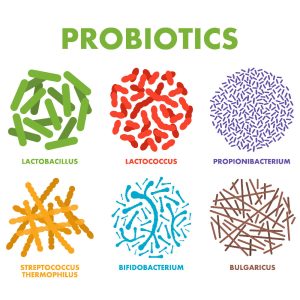 Probiotics are live microorganisms( microbes) that can have salutary goods on or inside your body. Every mortal body is home to trillions of microorganisms that live with us and help support our fleshly functions and health. Not all of the microbes we may carry are helpful to us some types( germs) can be dangerous. still salutary microbes, like probiotics, help to control the potentially dangerous types.
Probiotics are live microorganisms( microbes) that can have salutary goods on or inside your body. Every mortal body is home to trillions of microorganisms that live with us and help support our fleshly functions and health. Not all of the microbes we may carry are helpful to us some types( germs) can be dangerous. still salutary microbes, like probiotics, help to control the potentially dangerous types.
Probiotic products contain select, salutary types of microbes to add to the populations formerly living in your body. numerous probiotics are oral supplements designed to be ingested into your gastrointestinal tract. Others are topical products that you can apply to your skin or the mucous membranes inside your body depressions, like your nose or genitals. These are all places where salutary microbes generally live.
What do probiotics do?
Probiotics are food and health products that contribute live, salutary microbes to the populations within your gut and away, to strengthen those communities. They’re meant to help and treat dysbiosis — an imbalance or a deficiency of salutary microbes in your microbiome. When they work, the microbes take up hearthstone on or in your body, adding to the populations formerly living there.
Not all probiotics are likewise, however. Different types of microbes serve elsewhere within your body, so different types might be more or worse for your condition. Probiotics also aren’t regulated by the FDA, so manufacturers don’t have to prove the quality or indeed the contents of their products. It’s a good idea to consult a knowledgeable healthcare provider about which probiotics might work stylish for your requirements.
When are probiotics recommended?
Still, in your digestive system or away, your healthcare provider might recommend probiotics to help bring your microbiome back to balance, If you have symptoms of dysbiosis. However, your provider might suggest probiotics to help rebuild it, If you’ve lately had an illness or treatment that weakened your microbiome. For illustration, they might suggest taking or using probiotics after finishing a course of antibiotics.
Some people take a diurnal probiotic supplement to maintain their general heartiness. You might want to do this if you’re prone to gut health issues and you note it helps. A healthy gut microbiome can boost your overall impunity, reduce inflammation, and help keep your intestine regular. Everyday goods like stress and food choices can reduce your gut microbiome, and probiotics are one way to help restore it.
Are there any risks or side effects to taking probiotics?
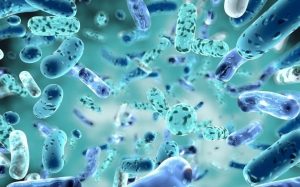
While there’s little specific exploration on the safety of probiotics, they appear to be safe for healthy people to take. They have a long history of wide and regular use among the public. There’s a small threat of adverse side goods for people with weaker vulnerable systems. This includes people taking immunosuppressant medicines, people with critical ails, and babies who ’ve been born precociously.
The threat is that a probiotic product might contain a dangerous type of microbe along with the helpful types. Microbes are veritably small, so the wrong kind can slip in under the radar if a product isn’t strictly tested. This is rare, and it’s not a serious threat to most people. A healthy vulnerable system will fluently clear out the pretender. But in a weakened vulnerable system, it could beget a serious infection.
Additional Common Questions
How can I tell if probiotics are working for me?
If you’re taking probiotics are working, you should be able to tell that you’re feeling better, If you’re taking probiotics for a specific purpose. For illustration, if you’re taking them to help relieve constipation or diarrhoea, you should notice your poops getting more regulated over time. However, you should notice your symptoms perfecting, If you’re taking them to relieve a bacterial or incentive infection or overgrowth.
Make sure you’re taking them constantly, and at the recommended lozenge, so you can duly judge how well they ’reworking. However, it might be harder to tell, If you’re taking them preventively. For illustration, some people take probiotics to ameliorate their impunity during the cold wave and flu season. You might notice that you haven’t been sick as frequently as usual, but it’s hard to know if that’s due to the probiotics.
Can probiotics cause diarrhoea, constipation, or stomach pain?
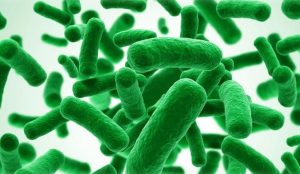
Numerous people take probiotics to help relieve diarrhoea, constipation, or stomach pain. Over the long term, probiotics should ameliorate your overall gut health, including your bowel chronicity and digestion, reducing discomfort. But in the short term, it’s possible that introducing new probiotics could spark analogous symptoms, especially if you’re taking a large cure or if your gut tends to be sensitive in general.
numerous probiotics produce a derivate called short-chain adipose acids in your gut. These derivations have numerous benefits to your gut health, but an unforeseen affluence of them could beget temporary diarrhoea. Other probiotics produce feasts in your gut as byproducts. However, you might notice increased bloating and gas during digestion, If you suddenly have further of them than usual. These symptoms should resolve within many days.
What’s the best way to take probiotics?
You can take probiotics as a salutary supplement, or you can get them through fermented foods and drinks. There are benefits to both styles. In general, food and drink sources might help to promote a lesser diversity of microbes in your biome, which is good for maintaining your general health. Some food sources may also include prebiotics, the filaments that probiotics need to feed on to thrive.
still, you might want to take a specific probiotic supplement that your healthcare provider has recommended for that purpose If you want to treat a particular issue. A supplement will generally give an advanced cure of probiotics than food sources will. Take it as recommended on the marker. Some probiotics work more with food, and others on an empty stomach. utmost need to be taken daily for the stylish results.
How might probiotics work?
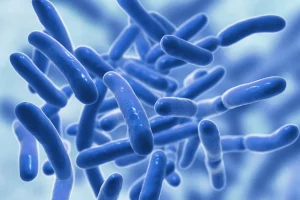
Probiotics may have a variety of effects on the body, and different probiotics may act in different ways.
Probiotics might:
- Help your body maintain a healthy community of microorganisms or help your body’s community of microorganisms return to a healthy condition after being disturbed
- Produce substances that have desirable effects
- Influence your body’s immune response.
How are probiotics regulated in the United States?
Government regulation of probiotics in the United States is complex. Depending on a probiotic product’s intended use, the FDA might regulate it as a salutary supplement, a food component, or a medicine.
numerous probiotics are vented as salutary supplements, which don’t bear FDA blessing before they’re retailed. Salutary supplement markers may make claims about how the product affects the structure or function of the body without FDA blessing, but they aren’t allowed to make health claims, similar to saying the supplement lowers your threat of getting a complaint, without the FDA’s concurrence.
still, it has to meet stricter conditions, If a probiotic is going to be retailed as a medicine for treatment of a complaint or complaint. It must be proven safe and effective for its intended use through clinical trials and be approved by the FDA before it can be vented.
How to Use Them Safely
The FDA regulates probiotics like foods, not specifics. Unlike medicine companies, makers of probiotic supplements do not have to show their products are safe or that they work.
Ask your croaker if taking probiotics is a good idea for you. In general, probiotic foods and supplements are allowed to be safe for most people, though some people with vulnerable system problems or other serious health conditions should not take them.
In some cases, mild side goods might include a worried stomach, diarrhoea, gas, and bloating for the first couple of days after you start taking them. They may also spark antipathetic responses. Stop taking them and talk to your croaker if you have problems.
Conclusion
Probiotics represent a promising avenue for promoting health and well-being through their different array of implicit benefits. From supporting digestive health to modulating vulnerable functions and impacting internal well-being, probiotics have demonstrated their versatility in contributing to overall health. still, it’s essential to approach probiotics with informed mindfulness, considering factors similar to strain particularity, lozenge, and individual health requirements. As exploration in this field continues to evolve, incorporating probiotics into a balanced life alongside a healthy diet and regular exercise may offer a holistic approach to optimizing health. By understanding the mechanisms of action and the colourful types of probiotics available, individuals can make informed choices to harness the implicit benefits of these salutary microorganisms.
Also read this blog

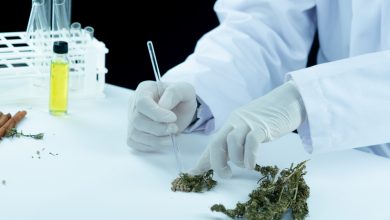


One Comment